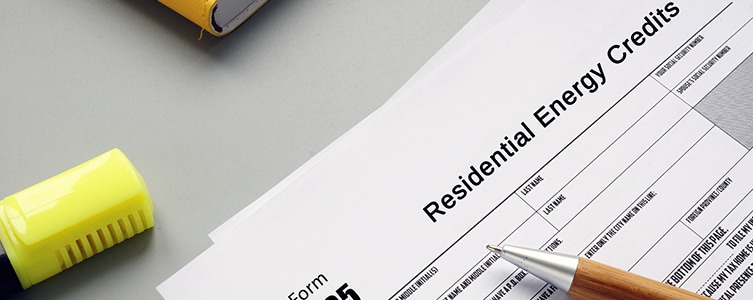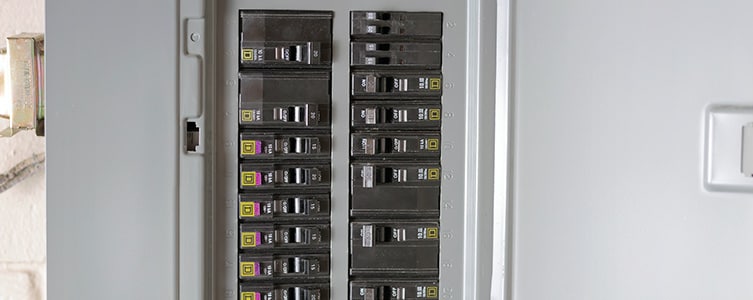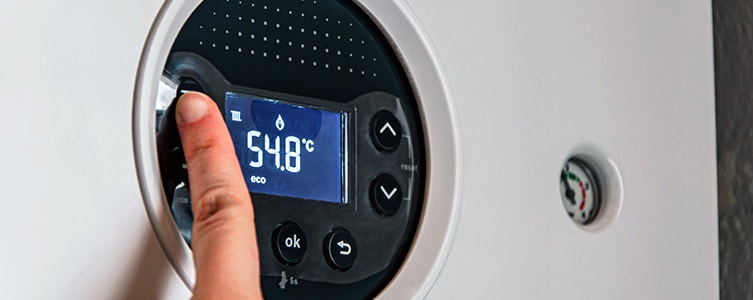
Save Money with a Heat Pump Hybrid Water Heater
If your gas or electric water heater is nearing the end of its life, replacing it with a heat pump hybrid water heater can potentially save you hundreds of dollars per year. It’s also one of the simplest ways to take advantage of federal tax incentives and energy rebates.
This guide will cover everything you need to know to get started.
What is a Heat Pump Hybrid Water Heater?
A hybrid water heater, also known as an air source heat pump water heater, runs on electricity and uses heat pump technology to absorb heat from the surrounding air. This heat transfers to refrigerant flowing through a coil. Finally, the hot refrigerant transfers its heat to stored water, which can then go to your sink, shower, etc.
If the unit can’t capture enough heat from the air, such as during periods of high hot water demand, backup electrical heating elements will raise the water to the setpoint temperature. This ability to supplement heat gives it the “hybrid” water heater name.

Benefits of Heat Pump Water Heaters
Higher Efficiency
Hybrid water heaters are more efficient than gas or electric models, including tankless ones.
In fact, some heat pump water heaters achieve a Uniform Energy Factor (UEF) of 4. In contrast, standard electric water heaters typically fall in the range of 0.93-0.95, and gas water heaters could be as low as 0.63.*
According to Energy Star, a heat pump water heater can save a family of four roughly $550 per year in energy costs over a traditional electric-resistant water heater. Savings over a gas water heater will depend on the cost of gas versus electricity in your area.
*UEF measures how much energy a water heater converts directly into heating. In the example, the standard electric model with a UEF of 0.95 is 95% efficient and wastes only 5%. The 0.63 UEF gas water heater wastes 37%. The heat pump water heater achieves a 4 UEF because it can convert just one kilowatt-hour of electricity into 4 kilowatt-hours of heating energy.
Tax Credits/Rebates
Many hesitate when discovering the higher upfront costs associated with hybrid water heaters. However, you can significantly lower those costs thanks to generous federal, state, and utility incentives.

The federal energy-efficient home improvement tax credit allows homeowners to claim a 30 percent tax credit up to $2,000 per year when buying and installing a heat pump water heater. That alone could make it financially worth it for you.
Check out the Database of State Incentives for Renewables and Efficiency and the Energy Star Rebate Finder for more heat pump water heater incentives. If you live in an area with great incentives, you should take advantage of them.
Extra Air Conditioning
Since hybrid water heaters remove heat from their surroundings, they also double as air conditioners and dehumidifiers for your garage, basement, or whatever space they’re installed in. This can be incredibly refreshing during the summer and possibly save you on cooling costs.
Considerations
Although they're an extremely effective solution for most people, heat pump water heaters present specific considerations.
Climate
Heat pump water heaters need access to enough surrounding heat to work as effectively as designed. The space where they are installed should stay above 45°F year-round.
This is obviously not a concern in warmer climates, where heat pump water heaters are often installed outside. It’s something to think about if you live in a very cold climate, though. You may need to heat the space around your water heater, typically a basement or garage.

Since the water heater will remove heat, the surrounding space may feel very cold during the winter, so you may be sacrificing your ability to spend time there.
Remember, hybrid water heaters have backup heat elements that can kick on if there isn’t enough heat in the surrounding space. This will raise energy costs but make your water heater viable year-round, regardless of climate.
Space
If you switch to a heat pump hybrid water heater, you will need the space to accommodate a 50–80-gallon storage tank. The heat pump will also need enough space to allow sufficient airflow and heat extraction.
Thus, if you’re switching from a 40-gallon model you might have kept in a closet, you will likely need to pick a location with more space. This will be even more relevant if you’re switching from a small tankless unit.
Electrical Requirements
Heat pump water heaters require significant electrical power to operate effectively. Many need 240-volt electricity and a 15- or 30-amp circuit breaker. If your home doesn’t meet these electrical requirements, make the necessary upgrades first.

Sizing
The same principles apply to sizing a heat pump water heater as a traditional storage tank model.
It comes down to knowing the water heating capacity you need and ensuring the water heater’s first-hour rating slightly exceeds that capacity. The first-hour rating denotes how much water the heater can provide in one hour.
Figure this out by:
- Determining the hour of the day when your household uses the most amount of hot water.
- Calculating how many gallons of hot water you use in that hour. This is your peak demand.
You should select a water heater with a first-hour rating higher than the amount of water your household uses during this peak hour. Reference our storage tank water heater sizing worksheet to estimate your family’s hot water usage.
To illustrate, here’s an example.
Every evening, you and your spouse each take a shower while the dishwasher is running. On average, one shower uses 20 gallons of hot water, and a dishwasher uses seven gallons. Therefore, the most hot water you ever use at one time is (20x2) + 7 = 47 gallons.
We recommend slightly oversizing heat pump water heaters, especially if it’s a (120V/15A or 240V/15A) model or you live in a colder climate, to reduce dependence on the backup heat elements.

Installation
Heat pump water heaters are straightforward installations for a licensed professional. They install like a standard electric water heater with a couple of extra considerations:
- Location matters more for hybrid water heaters. They need a large space to accommodate the tank and provide plenty of airflow. They may also be louder and release cold air, so you won't want them installed too close to a bedroom.
- Hybrid water heaters produce condensate as a byproduct. Your installer will need to set up drainage for this condensate.
Because of the electrical work involved, you should definitely hire a professional to install your hybrid heat pump water heater. Besides posing safety and quality risks, self-installations may also void your warranty.
Installed properly, a heat pump hybrid water heater can be a positive game-changer for your home and wallet.
Comparisons With Other Water Heaters
When shopping for a hybrid water heater, it’s helpful to compare it to other water heating options.
Hybrid Water Heater vs. Gas
Hybrid water heaters are cleaner, safer, and more efficient than gas water heaters.
They are cleaner because they don’t release any combustion emissions. This also contributes to their safety. No combustion means no chance of a deadly Carbon Monoxide (CO) leak in your home.
Finally, they are more efficient because they do not lose heat energy through exhaust. In contrast, some gas water heaters lose more than 30% of the heat they produce. Even highly efficient tankless gas water heaters waste significantly more energy than heat pump models.
At the same time, gas water heaters do have some advantages. They cost less upfront and generate higher volumes of heat. Although the backup elements on a hybrid water heater can bridge this difference, using them lowers efficiency. Going with gas also allows you to buy a smaller storage tank or tankless unit to save space.
Be sure to compare the cost of gas vs. electricity in your area to determine which option makes the most sense in the long term. Just remember that hybrid water heaters have better tax credits and rebates that can help offset any higher costs.
Heat Pump Water Heater vs. Electric
Although both run on electricity, a traditional electric water heater relies entirely on elements to generate its heat, making it less efficient than a heat pump water heater, which transfers existing heat.
This fundamental difference can save those who switch to a heat pump water heater from an electric one hundreds of dollars per year, even though power requirements are similar.
The only upside of standard electric water heaters is their more reliable performance in cold or subzero temperatures. However, with their backup electric heat elements, hybrid water heaters make this a moot point.
| Heat Pump Water Heater | Electric Water Heater | Gas Water Heater | |
|---|---|---|---|
| Upfront Cost | |||
| Efficiency | |||
| Power Requirments | 240V | 240V | 115V/None |
| Heating Capability | |||
| Tank Size | 50-80 gal. | 10-80 gal., Tankless | 40-75 gal., Tankless |
| Energy Costs | |||
| Rebates | - |
Hybrid Water Heaters: What to Look For?
Keep the following in mind when reviewing the features on heat pump water heaters.
Operation Modes
The best hybrid water heaters offer various operation modes to fit different situations.
- Heat Pump Mode, sometimes known as high-efficiency mode, uses only the heat pump component to heat the water and save you the most energy. This is ideal when hot water demand is low and the surrounding air is warm.
- Hybrid Mode primarily uses the heat pump component but will kick on the backup electric heating elements if needed. This is great on colder days or when there is higher water demand because it helps ensure you won’t run out of hot water.
- Electric Mode uses only the electric heat elements instead of the heat pump. This is the least efficient setting but may be necessary in emergencies when it’s really cold.
- Vacation mode is great when you’re out of town. It maintains a minimal water temperature to reduce operating costs while providing freeze protection.

Smart Connectivity
In this smart home age, look for a heat pump water heater with WiFi or Bluetooth connectivity. This allows you to monitor and control your unit via an app. You might use it to switch between operating modes remotely, check for any service alerts, or adjust the water temperature.
Quiet Operation
Heat pump water heaters can be noisy due to the fan extracting heat. This can be worse during winter when the water heater is working harder. However, even at its worst, a heat pump water heater shouldn’t get louder than an average conversation. It might sound like a distant hum or background noise you won’t notice.
Still, if you are noise-sensitive or plan to install a water heater near a bedroom or other living space, look for a quieter model. Some can be as quiet as 45 decibels or around the volume of a refrigerator.
Leak Protection
Buying a hybrid water heater with leak detection ensures you’ll quickly catch any storage tank leaks and prevent water damage. You will also want an integrated automatic shut-off valve to cut off the water supply in case of a leak.
The Best Hybrid Water Heater: A.O. Smith FPTU

The FPTU from A.O. Smith represents the very best that hybrid heat pump water heaters have to offer. It costs under $2,000, making it perfect for first-timers.
The FPTU comes in 50 and 80-gallon options, so every household will find an appropriately sized heater for its hot water needs. Furthermore, four different operating modes adapt performance to the situation at hand: heat pump-only, hybrid, electric-only, and vacation.
In addition, the FPTU is quieter than many heat pump water heaters at only 45 decibels. It also has smart connectivity, so you can monitor and control it remotely via the free A.O. Smith app using WiFi or Bluetooth. If you’re old-school, a user-friendly interface on the unit makes controls and diagnostics simple.
Count on this water heater to last. A stainless-steel anode rod core extends the anode rod’s life to protect the tank from corrosion longer. Leak detection technology helps prevent flooding. Backed by the reliable A.O. Smith name, the FPTU heat pump water heater will be one of the best investments you’ll make in your home.

